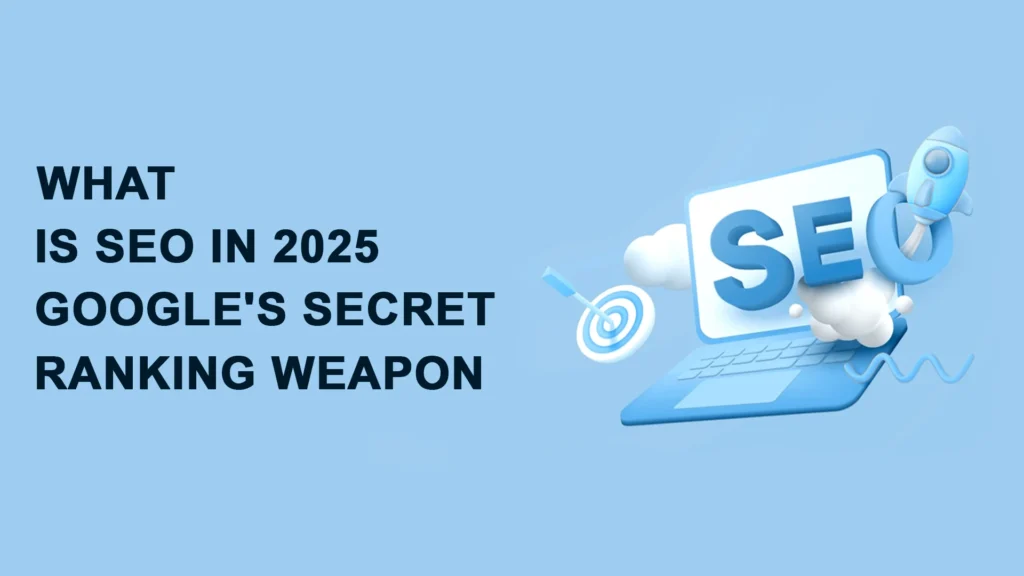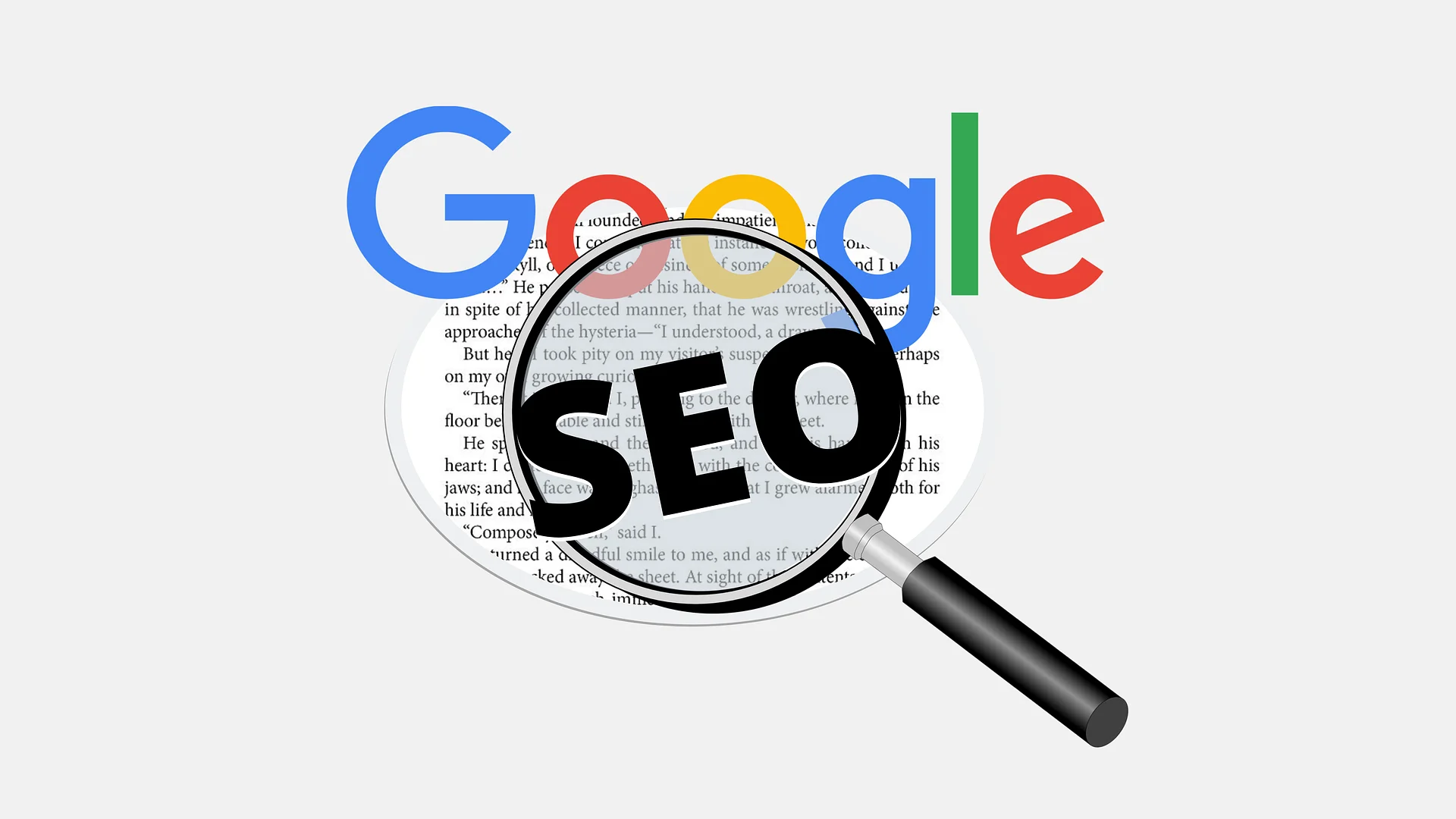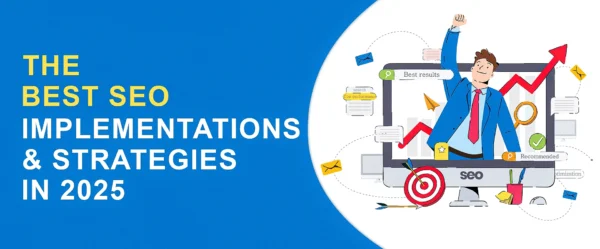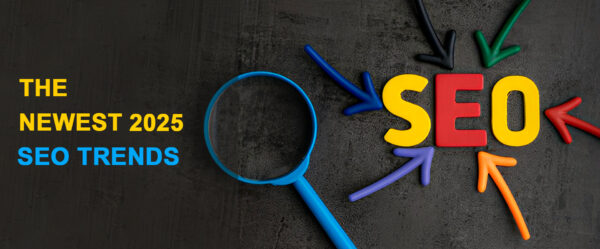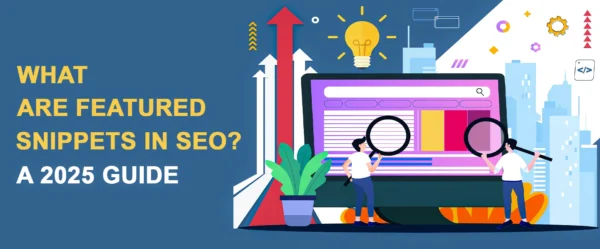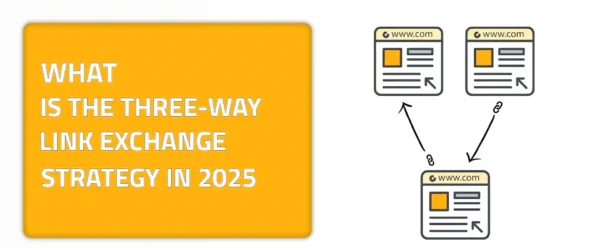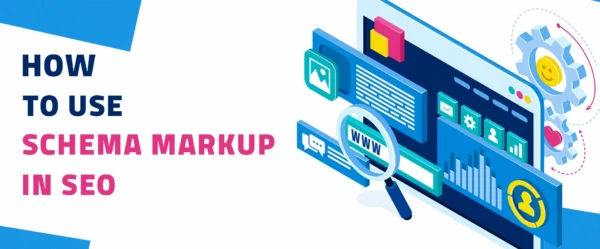If you feel like you need to understand more about how to succeed regarding your website and its ranking, you need to understand all about SEO and it’s implementations. I know how general this may sound, but indulge me and let me uncover for you what is SEO in 2025. Search Engine Optimization, or SEO, has advanced significantly since the days of keyword stuffing and spammy backlinks.
This was when a lot of websites would attempt to climb the search engine ranking ladder of Google’s famous SERPs by cramming as many keywords as possible onto a page. We all know that these tricks only worked in the early 2000s, but as we evolved, Google too evolved and started putting those high standards.
Ones that make it harder for websites to simply rank through using such blackhat methods. Google nowadays has this digital detective algorithm that seems to be able to sniff out low-quality tactics. But it isn’t only about penalties here. Google also rewards websites that offer relevant and valuable content and link back to reputable, high-quality links from esteemed and reputable domains. Delve more into this guide to understand SEO in 2025 and get to know more about the methods of implementing a great SEO strategy that will help you achieve the success that you’re searching for.
SEO in 2025: The Many Layers of SEO in 2025
In 2025, SEO is getting more complex and exciting to understand and implement. To be honest, the term “SEO” only gained popularity a few years ago. That is why it may sound a bit mysterious for some but if you search in all the right places, you’ll find that it is way more simple than you think.
Google’s algorithms have evolved to become more intuitive, almost like they have a mind of their own, which sometimes leaves marketers scratching their heads in both awe and frustration. Additionally, the integration of the new AI revolution in everything tends to simply make us feel like we have to keep up with the whole new science fiction race we seem to be at. In this article, we are diving deep into the latest SEO trends that are shaping search rankings in 2025. We will explore AI-driven search, Google’s increasingly human-like understanding of content, and the secret ingredients that many businesses are overlooking.
How Has SEO Changed in 2025? Key Trends to Watch
In 2025, SEO has transformed significantly from its previous era. Yes, I know that we discussed how stuffing keywords in a page isn’t something that is going to work nowadays with all the updates that we’re currently witnessing in today’s technological era. Collecting random backlinks as well is something that will never land you on Google’s first SERP. Today, with the smarter SEO that we’re dealing with, things have gotten more intuitive.
I know that things can get a bit unpredictable and that is why we’re taking a discovery dive to get to understand Google’s new algorithm updates and see what we can do to enhance our SEO. The new ranking algorithm is close to a human who is certified in sniffing out who bluffs and who doesn’t. That is all thanks to its deep integration of artificial intelligence and machine learning. Let me just tell you that anyone who is still relying on outdated tactics will be rudely awakened to the new rules.
User Intent and Trust Signals: How is Google Changing Nowadays?
One of the most striking changes is how Google prioritizes user intent over exact-match keywords. The search engine no longer cares if your content perfectly matches a query word for word. What matters now is whether your content actually satisfies what the user is searching for. If someone types “best ways to stay fit,” Google wants to see content that genuinely helps them stay fit, not just a page repeating “best ways to stay fit” a dozen times.
Trust signals have also gained prominence. Authoritative backlinks, content written by actual experts, and sites with strong reputations now hold more weight than ever. If a website lacks credibility, it will struggle to gain visibility. That’s the straightforward truth. Google has become a tough critic, rewarding sites that provide real value while pushing low-quality ones into oblivion with Tom Cruise.
User Experience, Predictive Search, and More Trends!
User experience has also moved to the forefront. It is not just about how fast your website loads anymore. I know that speed is still crucial. However, Google also evaluates how users interact with a site. Are they scrolling, clicking, engaging with content, or bouncing off in frustration? A seamless, engaging, and intuitive website is a must for SEO success.
Perhaps the most fascinating change is Google’s shift toward predictive search. Instead of just responding to search queries, Google is now trying to anticipate what users will need before they even type. It is almost like having a mind-reading assistant. If a user frequently searches for fitness tips and healthy recipes, Google might start showing them wellness-related content.
That is, before they even ask for it. This means brands need to think ahead. They need to craft content that aligns with emerging trends and future user needs. All of that, rather than just reacting to what is popular today. In 2025, SEO is no longer just about following the rules. Understanding how Google thinks, anticipating user needs, and producing high-quality, engaging content are key components of SEO in 2025. These are the factors that will contribute to your business success.
SEO in 2025: The Role of AI and Machine Learning in Search Rankings
AI is not just shaping SEO; it is completely revolutionizing it. What was once a game of plugging in the right keywords and collecting backlinks has now transformed into a highly intelligent system. One that understands user intent, context, and even emotions. Yes, emotions. Scary, I know. Google’s AI-driven algorithms, such as RankBrain and MUM, have become so sophisticated that they can interpret complex queries with near-human precision. It’s as if Google has developed an intuitive understanding of users’ true desires.
So, what does this mean for SEO professionals? This implies that the traditional methods of keyword stuffing and relying on basic optimization techniques are no longer effective. SEO strategies must evolve to embrace AI-powered optimization. This is where search engines prioritize relevance, context, and user satisfaction over outdated ranking factors. Imagine trying to fool an AI as advanced as Google’s with shallow content. It is like trying to outsmart a detective who has read every book ever written on human behavior. Warning: Your chances of success are slim.
Google’s MUM and How it is Revolutionizing SEO
A prime example of AI’s growing role in SEO is Google’s MUM, also known as the Multitask Unified Model. Unlike traditional algorithms that primarily analyze text, MUM can process and understand multiple content types simultaneously. This includes text, images, videos, and even audio. If someone searches for “best hiking trails in Japan,” MUM does not just return a list of blog articles. Instead, it pulls in rich and diverse results. Ones that might include a YouTube travel vlog, an Instagram post showcasing breathtaking mountain views, and even an audio snippet from a hiking enthusiast sharing firsthand experiences. Talk about providing people with the information they need. Yeah, MUM has got you covered when it comes to that.
For brands, this means one thing: diversify your content strategy. If you are still only focusing on blog posts, you are missing out on a huge opportunity. In 2025, businesses that optimize multimedia assets, videos, infographics, podcasts, and interactive content will have a competitive edge. It is no longer about just ranking for keywords. It is about providing the most engaging, informative, and visually appealing experience that AI-powered search engines can recognize and reward. So, if you are not already investing in multimedia SEO, now is the time to get started. Google is not just looking at what you say; it is paying close attention to how you say it. So you better say it in a way that will be perceived positively and not just disregarded.
SEO in 2025: The Rise of Search Intent and Contextual Understanding
Have you ever typed something vague into Google, expecting a mess of random results, only to find that Google somehow read your mind? It is almost like the search engine turned into Cole from The Sixth Sense movie! That is because search intent has become the backbone of SEO in 2025. It is transforming the way we interact with search engines. Google no longer just matches words in a query. It understands the “why” behind every search. Which is something of great importance, as it will help it display the best results for the user.
Let me give you a hypothetical example. If someone searches for “best smartphones,” are they looking for a list of top-rated models, planning to buy one, or just curious about what is trending? Google’s AI has become sophisticated enough to figure that out. It can determine whether the user wants to research a topic, compare options, make a purchase, or find a specific website. So what does this mean? It means that search results are no longer just a jumble of keyword-matching pages. They are curated experiences designed to give users exactly what they need, sometimes before they even realize they need it.
The Shift of Search Intents and It’s Landscape
This shift significantly transforms the landscape for businesses. You can no longer simply cram your content with keywords and hope for success. I know I mentioned it a zillion times before. But that is because this is something that is of great importance to highlight. If your content does not align with what users actually want, you are invisible to Google. To stay relevant, brands must focus on search intent and structure their content around the four primary types of intent:
- Informational: The user wants to learn something, like, “How does AI work?”
- Navigational: The user is looking for a specific website, like, “LinkedIn login.”
- Transactional: The user is ready to take action, like, “Buy running shoes online.”
- Commercial Investigation: The user is comparing options before purchasing, like “best laptops for students.”
SEO in 2025 is not just about getting clicks. It is about making sure that when users land on your page, they feel like they have found exactly what they were looking for. Google is not just a search engine anymore. It is a mind reader, a matchmaker, and, let’s be honest, probably one step away from predicting what you are going to eat for dinner. Believe me when I say that the updates of its algorithms are just the beginning of another upgrade that we will be presented with. If businesses want to win in SEO, they must stop thinking like robots and start thinking like their audience.
Content Quality Over Quantity: What Matters More?
Does publishing more content mean better rankings? Not anymore. Google’s AI has become incredibly smart, almost like a picky librarian who knows the difference between a timeless classic and a rushed, half-baked novel. Websites that churn out content just for the sake of it will no longer perform well. Google now prioritizes content that provides depth, originality, and true expertise. It is like the search engine is saying, “I see what you are doing, and I am not impressed.”
This shift forces businesses to rethink their content strategy entirely. Instead of flooding their website with countless short, surface-level blog posts, brands need to invest time and effort into crafting long-form, insightful, and genuinely useful content. Think of it like preparing a gourmet meal instead of microwaving a frozen dinner. A single, well-researched, engaging, and informative piece will do far more for SEO than ten rushed articles with little substance.
Case studies, expert opinions, and unique perspectives are becoming the secret ingredients for SEO success in 2025. If your content fails to address genuine queries, resolve pressing issues, or offer novel insights, Google will not prioritize it. So rather than churning out content just to fill up space, focus on creating pieces that truly stand out. Not only will Google reward you, but your readers will actually want to stick around for more.
The Impact of User Experience on SEO: More Than Just Speed
SEO and user experience are now inseparable, like peanut butter and jelly, but for websites. In 2025, Google’s ranking system is no longer just about how fast your pages load, though that still matters. Google now closely monitors how users interact with your site. Are they sticking around to read your content? Are they enthusiastically clicking through different pages? Or are they bouncing away faster than someone realizing they walked into the wrong party?
Websites with intuitive navigation, mobile-friendly designs, and engaging, interactive elements emerge as the true winners. If visitors enjoy scrolling, tapping, and actually using a site, Google takes that as a strong signal that the content is valuable. On the other hand, if a site is lagging, slow, or visually overwhelming, users will leave, and Google will take note of that little negative move.
Beyond design, simplicity and accessibility are now non-negotiable. The ideal layout should be clean and intuitive, featuring clear calls to action, easy-to-read fonts, and free from annoying pop-ups. Making your website inclusive for all users, including those with disabilities, is not just a moral obligation, but also a strategic SEO move. In 2025, ensuring a seamless user experience is no longer a luxury. Maintaining a seamless user experience is crucial for maintaining a competitive edge in the search industry.
E-E-A-T and Trust Signals: Why Google Cares More Than Ever
Expertise, Experience, Authoritativeness, and Trustworthiness, better known as E-E-A-T, have always been the backbone of strong SEO. But in 2025, they are not just important. They are absolutely non-negotiable. Google has heightened its standards, directing its algorithms to distinguish between individuals who possess genuine knowledge and those who are merely acting. If your goal is to rank highly with generic, AI-spun content or vague blog posts without credible sources, your efforts are likely to be ineffective.
Google now evaluates whether content is created by real experts with hands-on experience. It wants to see proof that a website is a reliable and trustworthy source of information. Think of it as Google playing detective, digging into every article, looking at the author’s background, checking the website’s reputation, and even analyzing whether other trusted sites are linking back to it. The more credible and authoritative your content appears, the more likely Google is to reward you with higher rankings.
Convincing Google With Your Trust Signals: Top Ways to Do It
So, how can you persuade Google of your legitimacy? Here are a few foolproof ways to build trust signals for SEO:
- Publish content written by industry experts and thought leaders who have actual experience in the field. If you are writing about cybersecurity, having an article authored by an ethical hacker will go a long way.
- Get featured in reputable publications and news sites. If big names in your industry are talking about you, Google will take notice. That is because they fear for their reputations and won’t mention you unless you’re reputable enough to make it on their domain or page.
- Secure high-quality backlinks from authoritative domains. Think of backlinks as endorsements. The more respected the website linking to you, the better your credibility.
- Maintain transparency with clear author bios and credentials. A faceless article with no source looks suspicious, while an article written by an expert with a strong background screams trustworthiness.
Google’s primary objective is to provide its users with the best and most reliable information. Businesses that take the time to build real authority, establish credibility, and provide value-packed content will see their rankings soar. On the other hand, those who try to cut corners with low-quality, anonymous content will find themselves buried under pages of search results, never to be seen again.
What Does the Future Hold for SEO? Predictions for the Next Era
Although it’s challenging to foresee every turn in the future of SEO, there are a few developments that are almost certain. One of the biggest shifts we’ll see is AI playing an even larger role in search rankings. It is the age of artificial intelligence and we’re here for it!
We’ve already seen how Google uses AI to refine its search results, but in the next few years, it will become the backbone of how websites are ranked. Machine learning and natural language processing are evolving so quickly that search engines will soon be able to interpret content and context like never before. Websites that are already embracing AI-driven strategies, such as personalized experiences and dynamic content, will have a significant edge.
Voice search will also continue to dominate. As more people use their smartphones and smart devices for on-the-go queries, websites that optimize for conversational keywords will be the winners. Imagine asking your voice assistant for the best pizza spot in town and getting the most relevant, real-time answers. If your website is answering these types of queries in a natural way, you’ll see some solid results in SEO rankings.
And let’s not forget about visual search! In the near future, it’ll be just as common to snap a photo and search for something visually as it is to type out a query. Google’s AI-powered visual search tools are becoming more sophisticated by the day. Websites that incorporate interactive visuals, such as high-quality images, videos, and infographics, will have a significant edge in this next SEO era. Ultimately, SEO will be about creating a deeply engaging, personalized, and seamless user experience that integrates AI, voice, and visuals. So get ready; SEO’s future is a lot more interactive, intuitive, and, dare I say, fun!
To Wrap Things Up!
As SEO continues to evolve in 2025, one thing remains undeniable: link-building remains the key to improving rankings. But here’s the twist: it’s no longer about collecting a bunch of random links from any site you can find. Google has grown much smarter and now places a premium on quality over quantity. What does that mean for you? Well, it’s time to focus on securing links from high-authority, relevant websites, the ones that truly matter.
Think of your backlinks as a popularity contest. Would you rather be the talk of the town, featured on the coolest websites, or stuck in the shadows, unnoticed by the right audience? The former wins every time. In 2025, Google’s algorithm rewards these premium, relevant links because they show your site is trustworthy and provides real value. So if you want your website to stand out in the search results, you’ve got to make sure your link profile is top-notch.
linkexchange.ai can significantly enhance your link-building efforts. This platform helps businesses like yours connect with reputable, high-authority websites to create strategic partnerships for link-building. With linkexchange.ai, you won’t just collect links; you’ll build a strong, trusted online presence. Building strong, trusted links is at the core of adapting to Google’s ever-changing strategies in the SEO game in 2025. So, what are you waiting for? Start linking up with the best and see how your SEO results skyrocket! After all, when it comes to SEO, it’s all about who you know and who links to you.


